Roughly one month ago, we held the first Solidity Summit - a free interactive forum with discussions and talks on Solidity, Yul, language design and tooling. It took place on April 29-30 and was powered by a virtual meeting infrastructure based on open-source, self-hosted Jitsi video chat rooms. The platform was supplied by Interspace.Chat.
Before we dive into the recap: Your input and active participation was much appreciated and we want to take this opportunity to say thank you! We hope you enjoyed the event as much as we did!
A special thanks goes out to all the speakers and moderators of the open discussions.
Today, we would like to take a few moments to look at the event from a retrospective point of view, as well as share the feedback we received afterwards, what we learned ourselves and all relevant post-conference links.
And in case you missed the event, don't worry! You can still find recordings of all talks below in the "video archive" section of this post.
Insights & Stats 📊
Initially, the Solidity Summit was planned to be a small, language design focused in-person gathering in Berlin with a expected participant count of 100-150 people.
Since the global circumstances forced us to transform it into an online event, there was luckily no need for limits on participation required anymore. The event was free of charge and the livestreams were publicly accessible for anybody to join.
Solidity Summit 2020 by the numbers..
- Prior to the event, we received roughly 250 applications via the signup form.
- During the event, the maximum combined participation of livestream and video conference room reached 150 concurrent participants, with 50-60 being the lowest concurrent participation rate.
- Both livestreams for conference day 1 and 2 reached more than 1000 playbacks each.
- The conference was a single track event, featured 23 talks and 13 open discussion rounds in total.
- The talks were brought to you by 20 speakers from teams all across the Solidity ecosystem as well as from 5 members of the EF Solidity team.
You can have a look at the full agenda here.
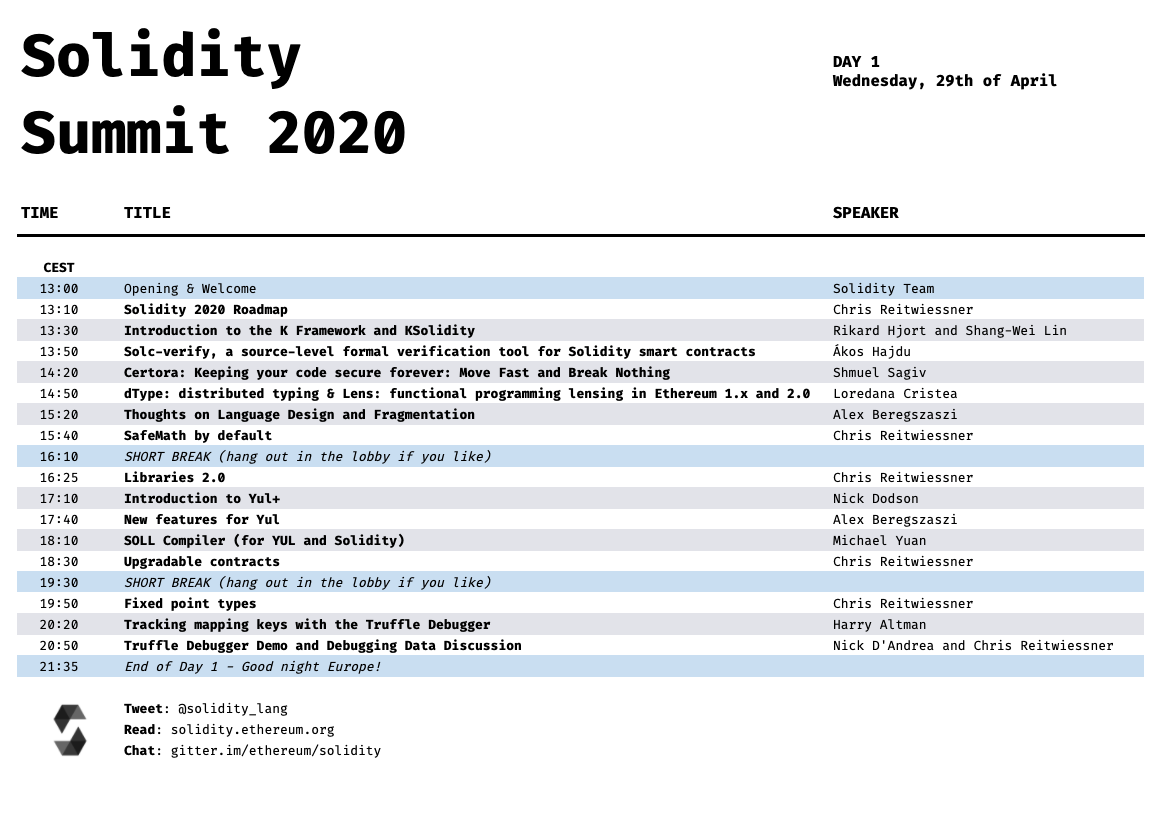 Solidity Summit Agenda - Day 1
Solidity Summit Agenda - Day 1
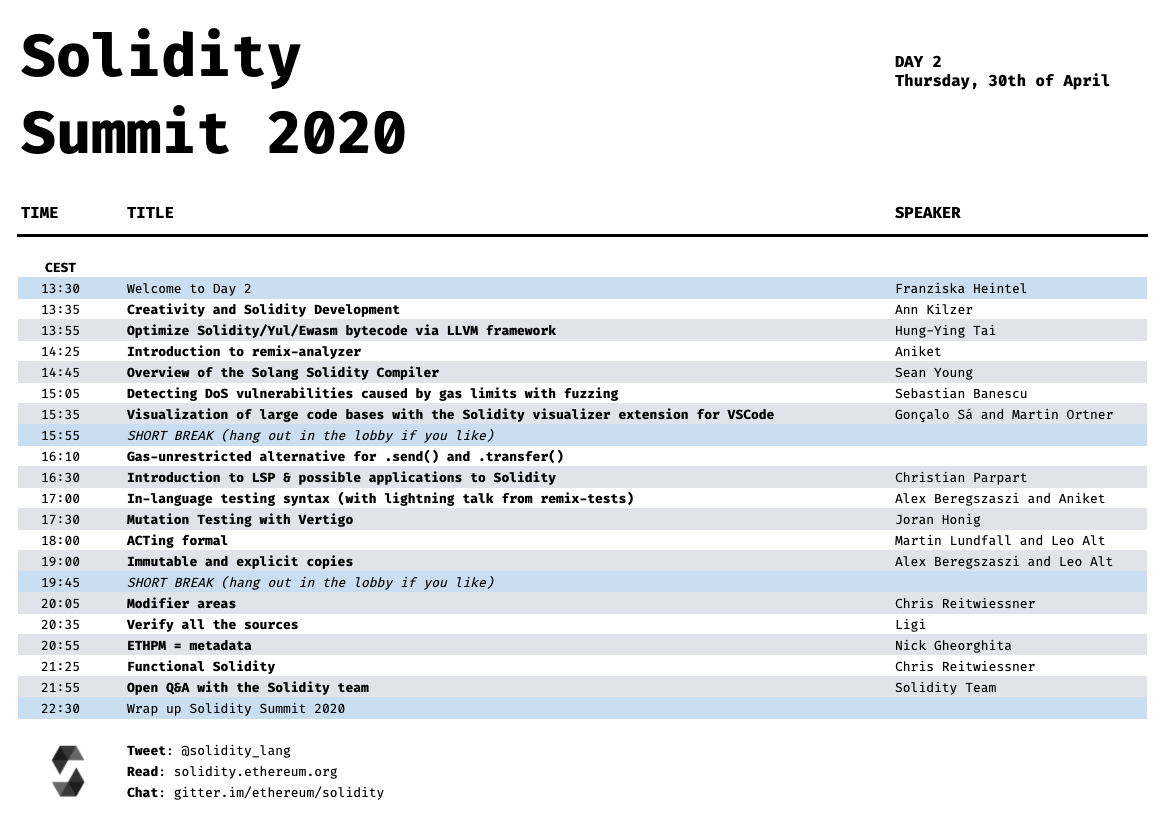 Solidity Summit Agenda - Day 2
Solidity Summit Agenda - Day 2
What did we learn? 💡
Organizing an online conference for the first time was an exciting and challenging task. Here are a few learnings and takeaways, which we would like to share:
- Finding the right tools is essential. Which tools can best facilitate an open and interactive discussion online? How many tools are needed for a truly interactive experience? If possible, can we support open source tooling without sacrificing good UX?
- Online conferencing can be quite exhausting. Next time we'll do more breaks!
- Open discussions on language design questions are hard. Good collaboration tools, preparation and moderation are important to facilitate the sessions and help structure them.
Video Archive: Rewatch everything 📺 🍿
Individual videos of all talks are available online in this playlist.
If you want to rewatch a whole day, you can do so by watching the livestream recording of the respective day. If you only want to see the talks (no discussion rounds) of Day 1 or Day 2, follow the playlist links below.
- Full Day 1 Livestream
- Talks Day 1 Playlist
- Full Day 2 Livestream
- Talks Day 2 Playlist
Please note that the discussion sessions have not been uploaded individually.
Outcomes of the Feedback Survey 📮
After the summit, we wanted to find out how you liked it, so we conducted a short participant satisfaction survey. Here's a boildown of the results:
Overall, participants had a very good impression of the Solidity Summit. They especially liked the "excitement of all participants about improving the language" and the single track format.
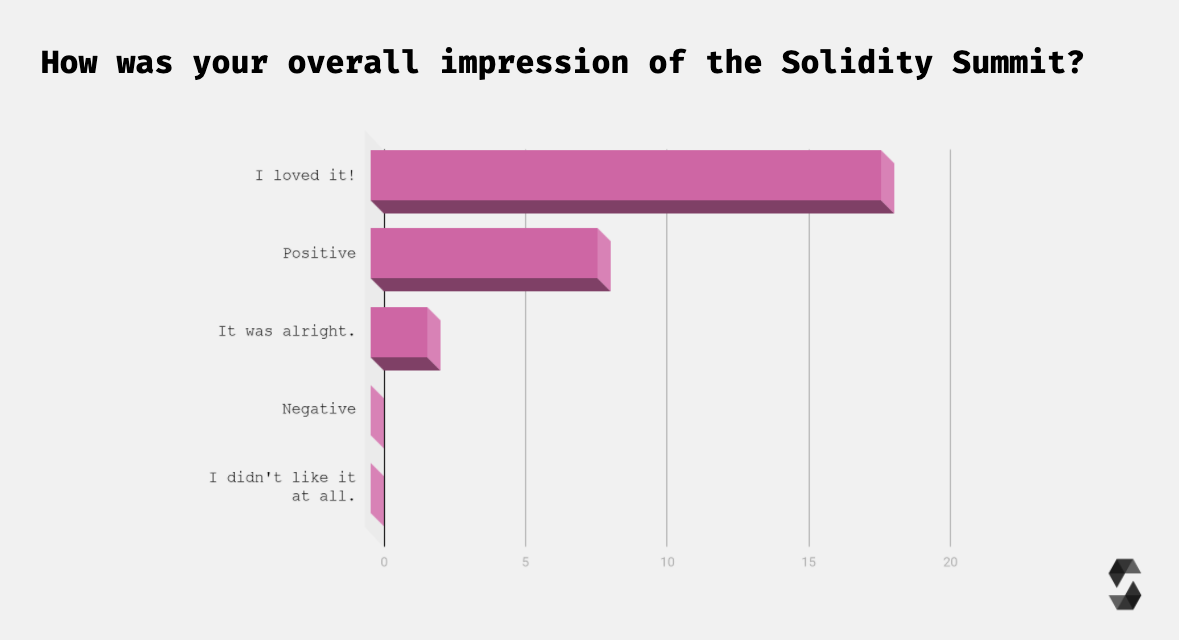
Moreover, the survey participants praised the positive energy and general organization, the online/virtual setup, the focus on technical content and the quality of the talks.
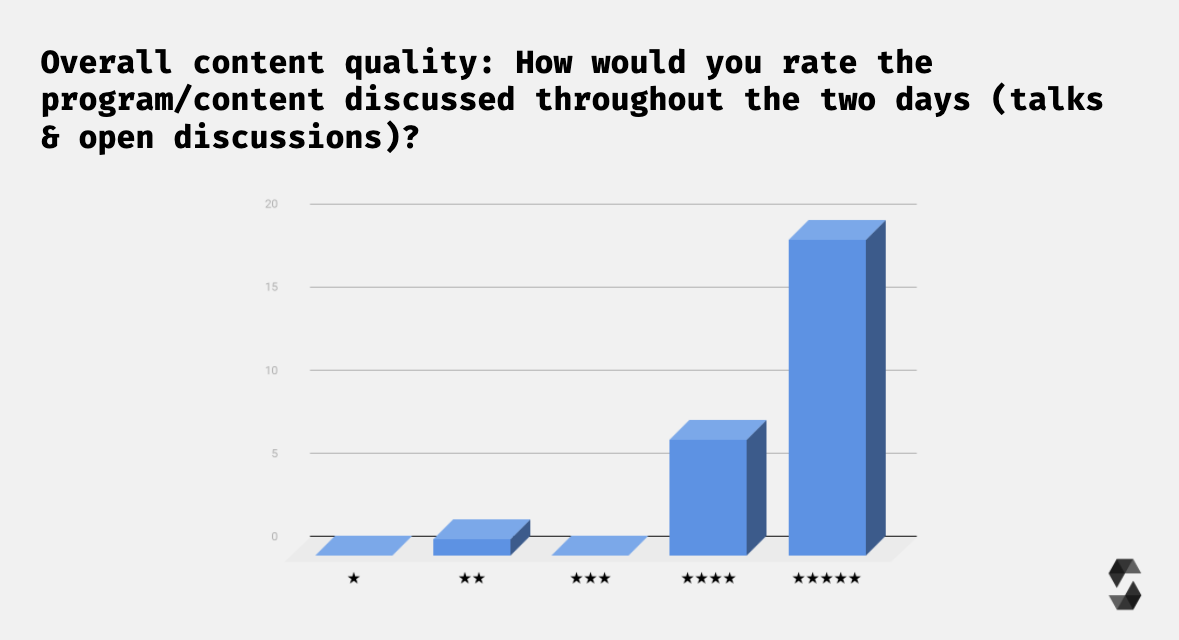
Still room for improvement was detected especially in the open discussion format. Ideas on how to improve it included:
- Invite more stakeholders to lead the sessions and do the opening talks of the discussion rounds (i.e. as an advocate for a specific feature)
- Allocate more time to selected discussion topics/ feature ideas to allow those to be specified out further
- Enhance collaboration possibilities via an easier chat or interaction interface (chatting via Gitter got messy at some point)
- Clearly state the goals or preferred outcomes of each discussion round beforehand
Furthermore, participants wished for more breaks and some preferred a conference to take place on the weekend instead of during the week.
Last but not least, we asked if you would attend Solidity Summit again: 100% said yes!
Future Plans 🔮
In order to not have to wait until the next edition of the Solidity Summit, we are evaluating several formats and means how we can keep in touch with the Solidity community moving forward.
The big majority of survey participants stated that they would be interested in more regularly discussing new features and language design questions with us.
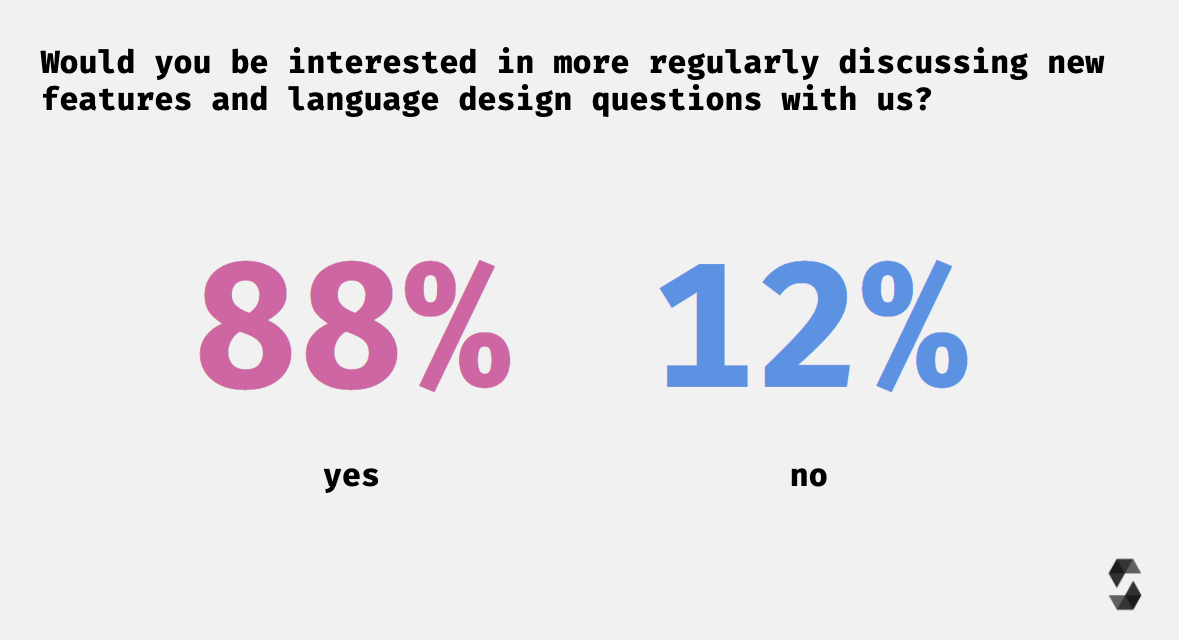
To do exactly that we decided to set up (for now) irregular community language design calls.
Each call will discuss one language design topic. The first test balloon of such a call was launched last Wednesday (2020-06-03), where we invited community members to discuss "SafeMath by default". You can find the notes of this call here.
Wrapping It Up
A programming language is nothing without the developers that build stuff with it, that's why we would like to thank you for your continued input and support!
We hope to see or hear many of you soon again, either in Gitter, Github issues, a community language design call or for the next iteration of the Solidity Summit. 🎉
In the meantime, please feel free to reach out to us with your ideas on how to improve the interaction between the Solidity team and the community at any time.
Follow us on Twitter
Ask us anything on Gitter
Check out Solidity on GitHub